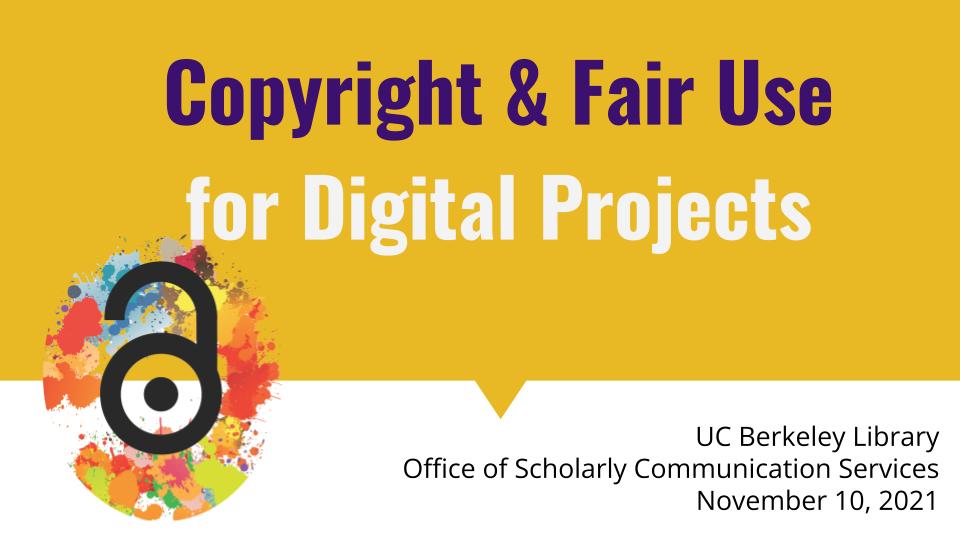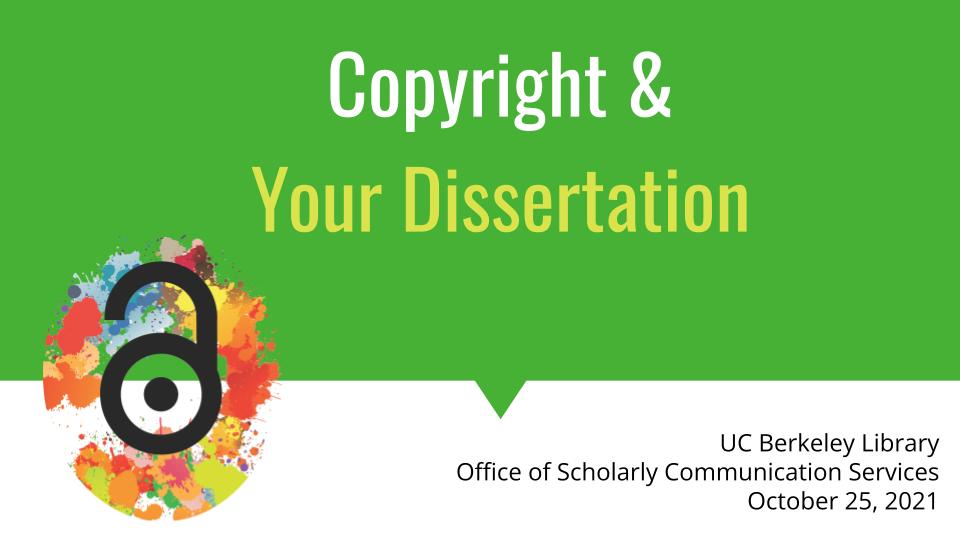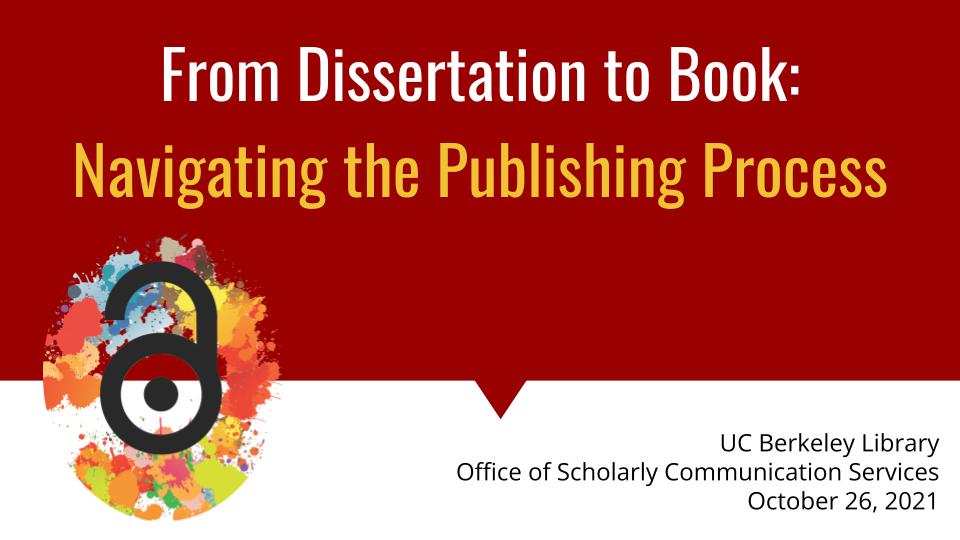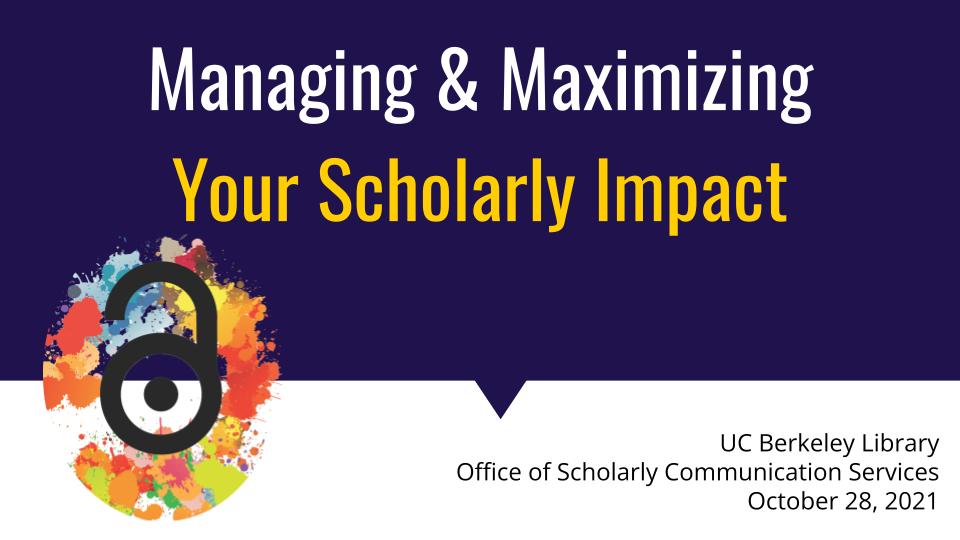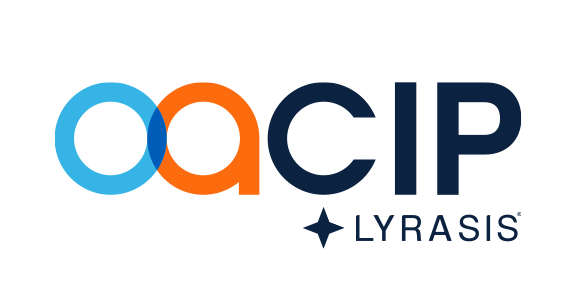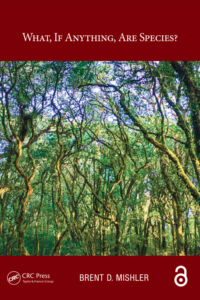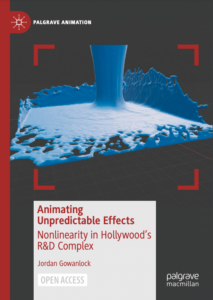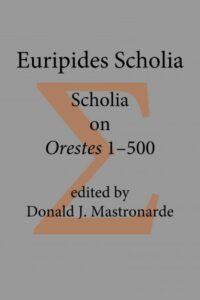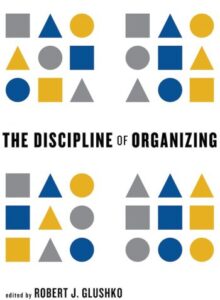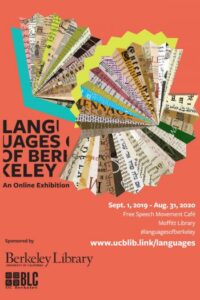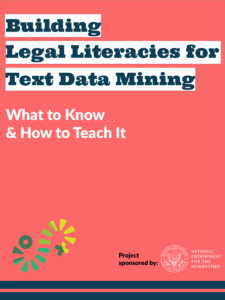Author: Timothy Vollmer
Making it easier to reuse and share Thérèse Bonney photography
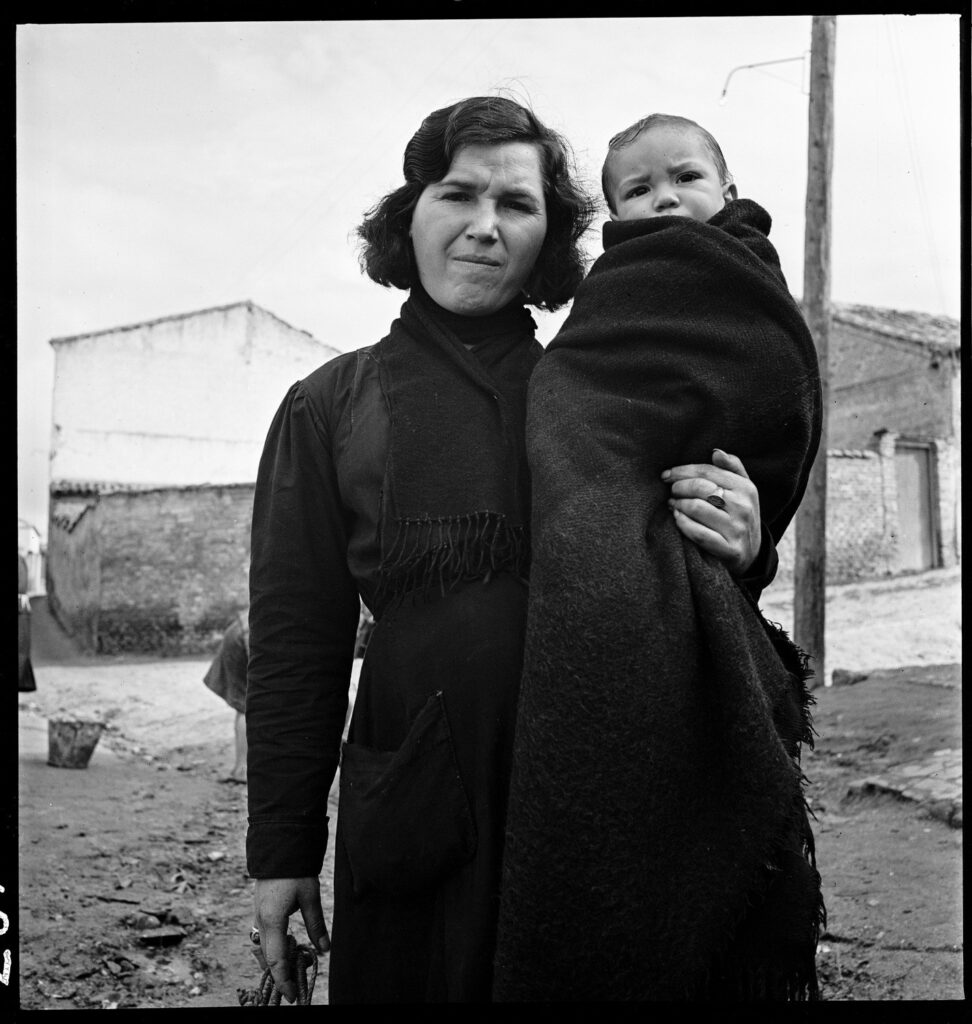
BANC PIC 1982.111.03.0287–NNEG
Thérèse Bonney, © The Regents of the University of California, The Bancroft Library, University of California, Berkeley. This work is made available under a Creative Commons Attribution 4.0 license.
As part of UC Berkeley Library’s trend-setting efforts to make all our collections easier to use, reuse, and publish from, we are excited to announce that:
We’ve just eliminated hurdles to the reuse of renowned photographer Thérèse Bonney’s photographs. Every photograph ever taken by Bonney is licensed under a Creative Commons Attribution 4.0 license (CC BY 4.0). This means anyone around the world can incorporate Bonney’s photos into papers, projects, and productions—even commercial ones—without ever getting further permission or another license from us.
Thérèse Bonney Copyright
Thérèse Bonney (1894-1978) was a documentary photographer and war correspondent. She concentrated much of her work on documenting conditions in Europe during World War II. Prior to her work as a war correspondent, Bonney extensively photographed French architecture and design, as well as writers and artists such as Joan Miró, Fernand Léger, and Gertrude Stein. Her photographs have been exhibited at the Museum of Modern Art, the Library of Congress, and Carnegie Hall.
Bonney transferred copyright to all of her work to the UC Regents to be managed by UC Berkeley Library. This includes Bonney materials at the UC Berkeley Library and any Bonney-authored or Bonney-created materials held by other institutions.
Although people did not previously need the UC Regents’ permission (sometimes called a “license”) to make fair uses of Bonney’s because of the progressive permissions policy we created, prior to July 2022 people did need a license to reuse Bonney’s works if their intended use exceeded fair use. As a result, hundreds of book publishers, journals, and film-makers sought licenses from the Library each year to publish Bonney’s photos.
The UC Berkeley Library recognized this as an unnecessary barrier for research and scholarship, and has now exercised its authority on behalf of the UC Regents to freely license Bonney’s entire corpus under CC-BY. This license is designed for maximum dissemination and use of the materials.
How to use Bonney’s works going forward
Now that all Bonney photographs have a CC-BY license applied to them, no additional permission or license from the UC Regents or anyone else is needed to use Bonney’s work, even if you are using the work for commercial purposes. No fees will be charged, and no paperwork is necessary.
The CC-BY license does require attribution to the copyright owner, which in this case is the UC Regents. The Library suggests the following attribution:
Thérèse Bonney, © The Regents of the University of California, The Bancroft Library, University of California, Berkeley. This work is made available under a Creative Commons Attribution 4.0 license.
What’s ahead for the Library
The Library now has some work to do to make our catalog and other information sources about the Bonney photos reflect this application of the CC-BY licenses. This means we have to update things like the Bonney collection finding aid and the metadata for individual photos in the digital versions of the Bonney photos that we make available online. In the meantime, you can rely on written confirmation that we’ve applied the CC-BY license by consulting the Easy to Use Collections page of our permissions guide.
In the coming year, we hope to add many more collections to that Easy to Use Collections page, too. We’ll be spending some time reviewing materials for which the UC Regents own copyright, and seeing what we can “open up” with other CC BY licenses. Stay tuned.
— — — — —
This post was written by the Library’s Office of Scholarly Communication Services.
Changes ahead for sharing open access articles on eScholarship

Note from October 21, 2022: this post has been updated with new rollout dates. Please see below.
If you are a University of California academic author who is employed at the UC but not part of the Faculty Senate, you will soon have a new way to post copies of scholarly articles you’ve written into eScholarship.org, the UC’s open access repository.
This blog post answers questions and provides assistance to those authors affected by this change.
What is happening?
There will be a procedural change to how certain UC authors upload copies of their scholarly articles to the UC’s institutional repository to make these articles available “open access.”
Publishing scholarship “open access” means making it available to be read online by anyone at no cost to the reader. Within the UC, there are many ways to publish “open access”, including by “depositing” or uploading a copy of your “author accepted manuscript” into the UC’s institutional repository. Author accepted manuscripts (or AAMs) are the final textual version of your article without publisher formatting and final copy edits.
What’s happening now are changes to how some of you may be doing the uploading of AAMs to eScholarship. Some UC Berkeley scholars (i.e. faculty senate authors) already use a special software system for the uploading process, whereas other scholars (i.e. anyone else employed within the UC who creates academic scholarship) instead upload AAMs directly to escholarship.org through the eScholarship website. Soon, everyone (that is both faculty and all other employees who create scholarly works) will begin using the special software system for uploading.
The software system is called UC’s Publication Management System. In addition to streamlining how you undertake the uploading of your AAMs, the software also proactively searches published literature for articles that it thinks you authored and should deposit. If the system identifies an article that it thinks you’ve published, you will receive an e-mail notification (on a bi-monthly basis) requesting that you upload your AAMs through the Publication Management System platform.
So, nothing is changing for you if you’re a faculty author who already has access to and uses the Publication Management System. But for all other academic authors within the University of California, you’re soon going to get a new way to deposit your AAMs to eScholarship, and will receive periodic e-mails letting you know when to do it.
Why is this happening?
The University of California has two open access policies addressing the deposit of AAMs into the eScholarship repository. One such policy pertains to Academic Senate faculty and has been in place since 2013. The other, called the Presidential Open Access Policy (because it was issued by the UC President in 2015), covers non-faculty authors. Specifically, the Presidential Open Access Policy includes non-senate researchers, lecturers, post-doctoral scholars, administrative staff, librarians, and graduate student employees.
California Digital Library, which oversees and manages the eScholarship repository, had already added everyone covered by the Academic Senate open access policy to the UC Publication Management System, making it easier for Academic Senate faculty to get their articles into eScholarship..
To date, however, authors covered by the Presidential Open Access Policy have only been able to upload their articles directly via the eScholarship website, and have not yet had access to the facilitation software. California Digital Library is now adding these “Presidential” policy authors to the Publication Management System, too.
Who is affected?
Scholarly authors who are employed by the UC and who are not part of the Faculty Senate.
Faculty Senate authors already use the UC Publication Management System software to upload their articles to eScholarship. Soon, non-Faculty Senate authors will also begin using the software to make their uploads, rather than uploading their AAMs directly via the eScholarship.org website.
How does the software work?
UC’s Publication Management System software searches multiple publication databases (such as Scopus, Web of Science, and others) to automatically locate scholarly articles written by UC authors, and sends them a periodic e-mail alert (about twice a month) to review the publications identified under their name, and upload a policy-compliant version of the article. The UC’s Open Access Policies grants covered authors the right to share their author accepted manuscript (the final, peer-reviewed, but not yet publisher-formatted version) immediately upon publication in a journal.
In addition to using the Publication Management System to claim and upload open access versions of articles, authors can also integrate scholarly profiles (such as ORCID), generate individual publishing reports, and get up-to-date statistics on the work they’ve authored while at the UC.
When is this happening?
The California Digital Library is rolling out the change over the course of a few months. This means that after the date outlined below, affected authors will begin to claim and upload their articles using the Publication Management System, and they’ll be notified via e-mail when there is an action they need to take.
If you are a non-Faculty Senate author in one of the following departments or units, you can expect California Digital Library to add you to the Publication Management System according to the following schedule:
June 2022
UC Berkeley libraries
July 2022 [New date: November 30, 2022]
Letters & Sciences – Arts & Humanities
Letters & Sciences – Biological Sciences
Letters & Sciences – Math & Physical Sciences
Letters & Sciences – Social Sciences
August 2022 [New date: January 18, 2023]
College of Chemistry
College of Environmental Design
College of Natural Resources
College of Engineering
September 2022 [New date: February 1, 2023]
UC Berkeley School of Law
Goldman School of Public Policy
Haas School of Business
School of Education
School of Information
School of Journalism
School of Optometry
School of Public Health
School of Social Welfare
March 1, 2023: All other academic units not situated under a college, school, or department classification mentioned above.
Where can authors get assistance?
Authors covered under the Presidential Open Access Policy can explore the UC Publication Management System now by logging in at https://oapolicy.universityofcalifornia.edu/. However, the Publication Management System will not begin sending e-mail notifications until the approximate rollout date indicated above.
California Digital Library maintains documentation and FAQs on how to navigate and use the Publication Management System, including helpful articles about how to get started with claiming and depositing your OA-compliant articles.
UC Berkeley Library staff are here to provide additional assistance. Please send your questions to oapolicy@lists.berkeley.edu and we’ll be in touch.
What you need to know about copyright “small claims”
Today the U.S. Copyright Office released the Copyright Claims Board website. The site provides information about the copyright small claims process, and will eventually include an electronic case management system once the Office begins to accept claims. This blog post explains what the copyright small claims is, what UC Berkeley community members should know if they receive a copyright small claims notice, and where you can get help or additional information.
— — — — —
In 2020, Congress passed a law called the “Copyright Alternative in Small-Claims Enforcement Act of 2020,” known as the “CASE Act.” The CASE Act mandated the formation of the Copyright Claims Board (“CCB”), a tribunal operating through the U.S. Copyright Office instead of the federal judicial branch, for the purpose of deciding “small claims” copyright infringement actions via a quicker, less expensive process—that is, without all of the procedural requirements of a normal federal court case. Damages are capped at $30,000 for CCB cases.
This page is for UC Berkeley faculty, staff, students, and scholars who might one day find themselves in receipt of a notice that a CCB action has been filed against them. The University of California also has a systemwide information page for UC-affiliated scholars, students, and employees.
Please note that the U.S. Copyright Office is still creating the rules that implement this new law, so the information on this page will evolve. And as with all information on this Office of Scholarly Communication Services website, our office cannot provide you with legal advice. However, we can help you understand how the law works. If you have further questions, contact us at schol-comm@berkeley.edu.
If you receive a claim notice
What will a notice look like?
If you live in California, then a genuine CCB claim notice is required to be “served” to you either in-person (i.e., handed to you) or by U.S. mail. If you have received only an email, you should be wary of its contents because email is not considered valid “service of process” in California.
A genuine CCB case notice will include a docket number and other information yet to be determined. The notice will have a link to the CCB website, where you can enter the docket number on your notice, view information about the particular claim filed against you, and take various actions.
What does it mean?
A claim filed against you in the CCB means that a purported copyright owner is asserting that you have infringed their copyright through something you have uploaded, reproduced, published, created, distributed, performed, or displayed.
The notice you receive signifies that the claimant has alleged copyright infringement, but the notice does not mean you have actually infringed or that the CCB will ultimately determine you have infringed.
Indeed, there are many reasons why your use of a copyrighted work may not be an infringement. For instance, there are key exceptions to copyright law that support teaching, scholarship, and research—most notably, fair use. These exceptions provide complete defenses to claims of infringement or, in some instances, permit a significant reduction of damages. Further, not everything is actually protected by copyright. Claimants may believe they hold copyright in materials that are not subject to copyright (e.g., because the materials reflect only facts or ideas) or are no longer protected by copyright (e.g., because the copyright in the materials has expired). Claimants may also believe that they hold copyright to materials for which copyright is actually held by a third party.
If you believe one of these situations applies to you—that is, that your use of the material is protected by an exception or that the allegations in the claim are not valid—you may wish to dispute the claim or opt out of the CCB proceeding entirely. We explain your options below. Regardless, we recommend you seek legal counsel as soon as possible after receipt of a CCB case notice.
What are your options?
If you receive a properly-served notice, do not ignore it. If you ignore it and do nothing, the case will proceed in the CCB, and a default judgment can be entered against you. This means that the CCB can enter a judgment holding you responsible for all the damages claimed in the notice (up to $30,000), regardless of whether the assertions are true or whether you could have claimed any defenses.
To avoid a default judgment, you will need to respond in the time prescribed by the notice. You can choose to respond in one of two ways:
- Proceed within the CCB tribunal. If you proceed, the case will be heard by the CCB. The CCB predicts that most cases will be handled completely online, so you will not need to travel to Washington D.C. (where the U.S. Copyright Office is physically located). You will be bound by the CCB’s decision. If the claimant wins, you may have to pay up to $15,000 for each infringed work, with a maximum cap of $30,000. CCB determinations are final. There are only limited circumstances—such as fraud, corruption, and misrepresentation—when a CCB determination can be reviewed by a federal court or the Copyright Office.
- Opt out of the CCB proceeding. It’s important to understand that, if you opt out, the copyright claimant cannot restart the same claim against you in front of the CCB. So, if you opt out of the CCB, the claimant can either stop pursuing the matter entirely or decide to file suit against you in federal court (assuming they meet all of the federal court filing requirements). Federal court is more expensive and complex than the CCB’s small claims process, so many small claimants may not want to incur the expense or may feel that their allegations will not survive scrutiny in federal court. Also, UC employees likely have broader protections in federal court than in the CCB, so a timely opt-out may be a good option.
If you decide to opt out, you must mail the paper opt-out form provided with your notice, or complete an online opt-out form on the CCB website, within 60 days of service. Note that in California, additional time may be added to the deadline for your response if service of the notice to you was made by mail, pursuant to California rules for service of process.
Note that if you decide to opt out, your decision applies only in response to that particular claim you received. As an individual (as opposed to certain organizations), you cannot opt out prospectively from all future CCB claims.
Where can you get help or more information?
If you’re a UC Berkeley student, staff, or faculty member, and the claim is related to what you do at UC, contact the UC Berkeley Office of Legal Affairs or UC’s Office of General Counsel promptly.
The UC Berkeley Office of Scholarly Communication Services can also answer questions about how the law works, but cannot dispense legal advice to you. You can contact us with questions at schol-comm@berkeley.edu.
The U.S. Copyright Office provides additional information on their Copyright Claims Board Frequently Asked Questions page.
Getting your book published open access: a panel discussion with Springer Nature and UC Berkeley
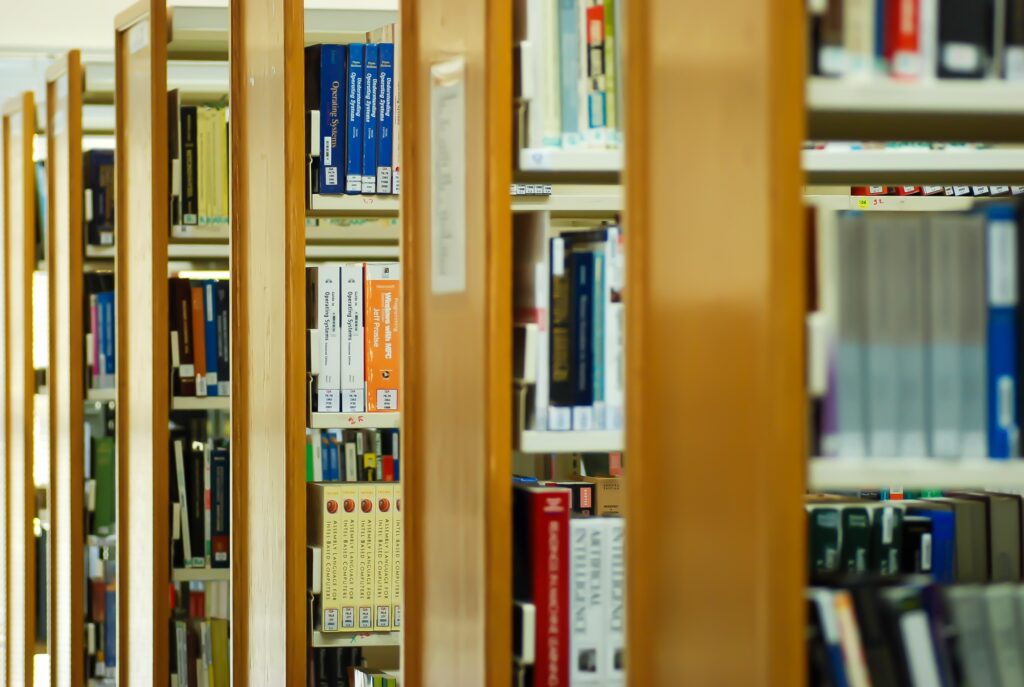
Photo by Haneen Krimly on Unsplash
Are you a scholarly author interested in publishing a book, but unfamiliar with how to find an editor or press? Have you considered publishing that book open access and want to understand your open access book publishing options?
Springer Nature and UC Berkeley invite you to join us for a virtual panel discussion.
Hear from a panel of Springer Nature Open Access Books Editors in both STM and the Humanities, and a recent author about the process of getting your manuscript published.
You’ll come away from this discussion with practical advice about opportunities at UC Berkeley to publish open access books with Springer Nature, and guidance for submitting and revising your work, writing a book proposal, approaching editors, signing your first contract, and navigating the peer review and publication process.
While the event is focused on supporting UC Berkeley authors, it is open to all, as other institutions may be interested in entering into open access book agreements with publishers.
When: Monday, 14th March 2022; 11am-12:15pm PDT
Where: https://us06web.zoom.us/webinar/register/WN_VhjMRxIhQ3CmhYuPDv0nGw
RSVP: Please click on the link above to register and you’ll receive a Zoom link to join on the day.
Upcoming digital publishing workshops with the Office of Scholarly Communication Services
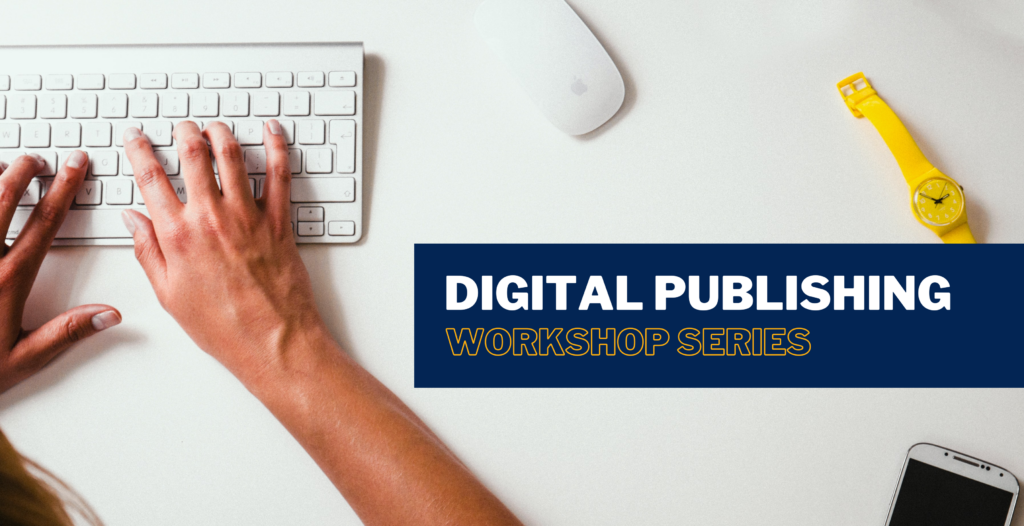
It’s 2022, and we’re right back at it with supporting your scholarship and publishing. This Spring, the Office of Scholarly Communication Services has some practical workshops for you as part of the Library’s Digital Publishing Series. Here’s what’s coming up over the next few months.
Workshops
Publish Digital Books and Open Educational Resources with Pressbooks
February 8, 2022
11:00am–12:30pm
Online: Register to receive the Zoom link
If you’re looking to self-publish work of any length and want an easy-to-use tool that offers a high degree of customization, allows flexibility with publishing formats (EPUB, PDF), and provides web-hosting options, Pressbooks may be great for you. Pressbooks is often the tool of choice for academics creating digital books, open textbooks, and open educational resources, since you can license your materials for reuse however you desire. Learn why and how to use Pressbooks for publishing your original books or course materials. You’ll leave the workshop with a project already under way! Signup at the link above and the Zoom login details will be emailed to you.
Can I Mine That? Should I Mine That?: A Clinic for Copyright, Ethics & More in TDM Research
March 9, 2022
11:00am–12:30pm
Online: Register to receive the Zoom link
If you are working on a computational text analysis project and have wondered how to legally acquire, use, and publish text and data, this workshop is for you! We will teach you 5 legal literacies (copyright, contracts, privacy, ethics, and special use cases) that will empower you to make well-informed decisions about compiling, using, and sharing your corpus. By the end of this workshop, and with a useful checklist in hand, you will be able to confidently design lawful text analysis projects or be well positioned to help others design such projects. Signup at the link above and the Zoom login details will be emailed to you.
Other ways we can help
In addition to the workshops, we’re here to help answer a variety of questions you might have on intellectual property, digital publishing, and information policy.
- Check out our website for information on issues such as copyright and fair use, text data mining, and UC’s Open Access Policy.
- Interested in publishing your research Open Access? UCB Library can help defray the costs of an article processing charge (up to $2,500) or book processing charge (up to $10,000). See the Berkeley Research Impact Initiative (BRII) for more information. And explore the various UC-wide transformative open access agreements that can help UC corresponding authors publish their scholarship open access.
- Do you want to create an open digital textbook? Take a look at UC Berkeley’s Open Book Publishing platform (anyone with a @berkeley.edu email can sign up for a free account), and get in touch with us about our Open Educational Resources (OER) grant program.
- Keep an eye on our events calendar for more workshops and trainings.
- Follow our blog, social media, and YouTube channel.
Want help or more information? Send us an email. We can provide individualized support and personal consultations, online class instruction, presentations and workshops for small or large groups & classes, and customized support and training for departments and disciplines.
Upcoming workshop reminder: Copyright & Fair Use for Digital Projects
We just wrapped up three publishing workshops last week, but there’s more in store. Check out the details below and sign up for the next one offered by the Office of Scholarly Communication Services. See you there!
Copyright and Fair Use for Digital Projects
November 10, 2021
11:00am–12:30pm
RSVP
This online training will help you navigate the copyright, fair use, and usage rights of including third-party content in your digital project. Whether you seek to embed video from other sources for analysis, post material you scanned from a visit to the archives, add images, upload documents, or more, understanding the basics of copyright and discovering a workflow for answering copyright-related digital scholarship questions will make you more confident in your project. We will also provide an overview of your intellectual property rights as a creator and ways to license your own work.
Reminder: 3 grad student publishing workshops coming up soon
The Office of Scholarly Communication Services is again offering a slate of workshops aimed to help graduate students understand copyright in the context of their dissertation or thesis, demystify the book publishing process, and manage their scholarly profile. Click the links below to sign up and get the Zoom details.
Copyright and Your Dissertation
October 25, 2021
1:00pm–2:30pm
RSVP
This workshop will provide you with practical guidance for navigating copyright questions and other legal considerations for your dissertation or thesis. Whether you’re just starting to write or you’re getting ready to file, you can use our tips and workflow to figure out what you can use, what rights you have as an author, and what it means to share your dissertation online.
From Dissertation to Book: Navigating the Publication Process
October 26, 2021
1:00pm–2:30pm
RSVP
Hear from a panel of experts—an acquisitions editor, a first-time book author, and an author rights expert—about the process of turning your dissertation into a book. You’ll come away from this panel discussion with practical advice about revising your dissertation, writing a book proposal, approaching editors, signing your first contract, and navigating the peer review and publication process.
Managing and Maximizing Your Scholarly Impact
October 28, 2021
1:00pm–2:30pm
RSVP
This workshop will provide you with practical strategies and tips for promoting your scholarship, increasing your citations, and monitoring your success. You’ll also learn how to understand metrics, use scholarly networking tools, evaluate journals and publishing options, and take advantage of funding opportunities for Open Access scholarship.
Expanding the Open Access Community Investment Program
Today the LYRASIS Open Access Community Investment Program (OACIP) announces a new round of funding opportunities to support open access publishing by scholarly journals. The journals seeking investments in OACIP round two include Algebraic Combinatorics, History of Media Studies, and Journal of Librarianship and Scholarly Communication.
OACIP, a joint project between LYRASIS and Transitioning Society Publications to Open Access (TSPOA), is a community-driven framework that enables multiple stakeholders (including libraries of all types, academic departments, and funding agencies) to efficiently and strategically evaluate and collectively fund open access content initiatives. OACIP doesn’t just bring together investment opportunities in one place, but also it provides important and consistent information about those opportunities to support informed and principled investing. It achieves this through criteria-based questionnaires to which participating publishers must respond. In this way, OACIP helps provide tailored match-making between nonprofit scholarly publishers who are seeking financial investments from funders (like libraries) who are looking to support OA publishing projects.
OACIP launched “phase 1” in 2020, piloting the program with two journals: Environmental Humanities and Combinatorial Theory. Both journals met their fundraising goals to sustainably publish open access for the next five years.
We are building off the pilot’s success by launching a second round of journals for investors like you to support.
Phase 2 Participating Journals
Algebraic Combinatorics
Algebraic Combinatorics (ALCO) is a peer-reviewed open access mathematics journal that published its first issue in January 2018. It is a specialty journal in the burgeoning field of algebraic combinatorics, spanning across and intricately linking several areas of mathematical research. ALCO was created after the entire editorial board of Springer-Nature’s Journal of Algebraic Combinatorics announced their intention to resign. The current journal is owned by mathematicians, dedicated to free dissemination of research, and committed to Diamond Open Access publishing, with no fees for authors or readers. ALCO published 5 issues in 2018 and 6 issues in both 2019 and 2020, and 4 issues so far in 2021. It seeks to raise a total of $125,000 to cover its next five years of publishing (i.e. publishing costs of $25,000 per year). These funds will be used to cover costs such as copy editing and reasonable editor compensation.
History of Media Studies
History of Media Studies (HMS) is a new, peer-reviewed, scholar-run open access journal founded to augment understanding of the ways that media have been conceived, investigated, and studied around the world. The journal is published by mediastudies.press, a scholar-led, diamond OA (i.e. never a fee to authors or readers) nonprofit publisher launched in 2019. HMS is low-volume by design, aiming to publish up to 10 full-length articles per year on a rolling basis, in addition to shorter contributions. The journal seeks to raise a total of $62,500 to support five years of its publishing (i.e. $12,500/year in publishing costs). Funds will be used to cover professional copy-editing/proofing, software, platform hosting, memberships, and other infrastructure and overhead.
Journal of Librarianship and Scholarly Communication
The Journal of Librarianship and Scholarly Communication (JLSC) is a peer-reviewed open access journal with no article processing charges. The journal is particularly interested in the intersection of librarianship and publishing and the resulting role of libraries in both content dissemination and content creation. Publishing since 2012, JLSC became a publication of the Iowa State University (ISU) Digital Press in July 2021. The journal typically publishes between 25 and 30 full length articles and five to ten shorter reviews and editorials per year. JLSC seeks to raise a total of $90,000 to sustain five years of its publishing (i.e. $18,000/year in publishing costs). Funds will be used to cover annual costs, including copy editing, layout, accessibility checking, and hosting.
How You Can Invest
An open access scholarly publishing transformation can happen only with broad community support. OACIP allows you to invest your limited funds wisely to OA journals and programs that align with your own institution’s values.
You can support the journals participating in OACIP by visiting the Open Access Community Investment Program webpage. There you can review the criteria responses provided by the journals, evaluate whether the investment opportunity makes sense for your organization, and commit funds.
The investment window is open now through July 31, 2022.
Follow OACIP on Twitter to stay up to date on OACIP activity.
Back in action with your scholarship

As the school year restarts in Berkeley, we know the pandemic is not over. But the Office of Scholarly Communication Services is here to help UC Berkeley faculty, students, and staff understand copyright and scholarly publishing with online resources, Zoom workshops, and virtual consultations.
If you’re interested in a recap of our progress and achievement over the last year, check out our 2020-21 annual report.
Here’s what’s coming up this semester.
Upcoming Workshops
Publish Digital Books and Open Educational Resources with Pressbooks
September 14, 2021
11:00am–12:30pm
RSVP
If you’re looking to self-publish work of any length and want an easy-to-use tool that offers a high degree of customization, allows flexibility with publishing formats (EPUB, PDF), and provides web-hosting options, Pressbooks may be great for you. Pressbooks is often the tool of choice for academics creating digital books, open textbooks, and open educational resources, since you can license your materials for reuse however you desire. Learn why and how to use Pressbooks for publishing your original books or course materials. You’ll leave the workshop with a project already under way! Signup at the link below and the Zoom login details will be emailed to you.
Copyright and Your Dissertation
October 25, 2021
1:00pm–2:30pm
RSVP
This workshop will provide you with practical guidance for navigating copyright questions and other legal considerations for your dissertation or thesis. Whether you’re just starting to write or you’re getting ready to file, you can use our tips and workflow to figure out what you can use, what rights you have as an author, and what it means to share your dissertation online.
From Dissertation to Book: Navigating the Publication Process
October 26, 2021
1:00pm–2:30pm
RSVP
Hear from a panel of experts—an acquisitions editor, a first-time book author, and an author rights expert—about the process of turning your dissertation into a book. You’ll come away from this panel discussion with practical advice about revising your dissertation, writing a book proposal, approaching editors, signing your first contract, and navigating the peer review and publication process.
Managing and Maximizing Your Scholarly Impact
October 28, 2021
1:00pm–2:30pm
RSVP
This workshop will provide you with practical strategies and tips for promoting your scholarship, increasing your citations, and monitoring your success. You’ll also learn how to understand metrics, use scholarly networking tools, evaluate journals and publishing options, and take advantage of funding opportunities for Open Access scholarship.
Copyright and Fair Use for Digital Projects
November 10, 2021
11:00am–12:30pm
RSVP
This training will help you navigate the copyright, fair use, and usage rights of including third-party content in your digital project. Whether you seek to embed video from other sources for analysis, post material you scanned from a visit to the archives, add images, upload documents, or more, understanding the basics of copyright and discovering a workflow for answering copyright-related digital scholarship questions will make you more confident in your project. We will also provide an overview of your intellectual property rights as a creator and ways to license your own work.
Other ways we can help
We’re here to help answer a variety of questions you might have on intellectual property, digital publishing, and information policy.
- Check out our website for information on issues such as copyright and fair use, the scholarly publishing lifecycle, and UC’s Open Access Policy.
- Interested in publishing your research Open Access? UCB Library can help defray the costs of an article processing charge (up to $2,500) or book processing charge (up to $10,000). See the Berkeley Research Impact Initiative (BRII) for more information. There are also opportunities to publish open access via one of the UC’s Transformative Open Access Agreements.
- Do you want to create an open digital textbook? Take a look at UC Berkeley’s Open Book Publishing platform (anyone with a @berkeley.edu email can signup for a free account), and get in touch with us about our Open Educational Resources (OER) grant program. Also check out our recent blog post which highlights some recent open access books made possible via the Library.
- Keep an eye on our events calendar for more workshops and trainings.
- Follow our blog and social media.
Want help or more information? Send us an email at schol-comm@berkeley.edu. We can provide individualized support and personal consultations, online class instruction, and customized support and training for departments.
Supporting open access book publishing at UC Berkeley: Summer 2021 update
The University of California has taken a multi-faceted approach to supporting open access (OA). For instance, UC’s open access policies ensure that university-affiliated authors can deposit their final, peer-reviewed research articles into eScholarship, our institutional repository, where the articles may be read by anyone for free. The UC has entered into several transformative open access agreements, with the dual goal of enabling universal open access to all UC research and containing the excessively high costs associated with licensing journals. UC also has been supporting new publishing models, such as Berghan Open Anthro’s Subscribe-to-Open.
At the local level, UC Berkeley Library continues to offer the Berkeley Research Impact Initiative (BRII). This program helps UC Berkeley authors defray article processing charges (APCs) that are sometimes required to publish in fully open access journals (note that BRII doesn’t reimburse authors for publishing in “hybrid” journals—that is, subscription journals that simply offer a separate option to pay to make an individual article open access). This past year BRII provided funding for the publication of 83 open access journal articles.
The Office of Scholarly Communication Services is involved in several efforts to help journals change from subscription access to open access, including through Transitioning Society Publication to Open Access (TSPOA), and the Open Access Community Investment Program (OACIP).
Ok, great. But what about books?
The number of open access books continues to grow. As of August 2021, the Directory of Open Access Books indexes 43,793 books. The Open Access Scholarly Publishing Association recently reported that over 1,600 open access books were published by its members in 2020, which represents a growth of over 16% over the previous year.
We know that not all University of California authors are publishing journal articles, and many disciplines—such as arts & humanities and social sciences—focus on the scholarly monograph (in other words, a book) as the preferred mode of publishing. And in contrast with journal articles, books typically cost significantly more to produce. At the systemwide level, the UC is supporting several open access book publishing ventures, including The Open Library of Humanities, which publishes open access scholarship with zero author facing charges, and Knowledge Unlatched, a collection of primarily open access book publishers seeking support from libraries.
So what is UC Berkeley doing to support OA book publishing? Let’s have a look.
Springer open access books partnership
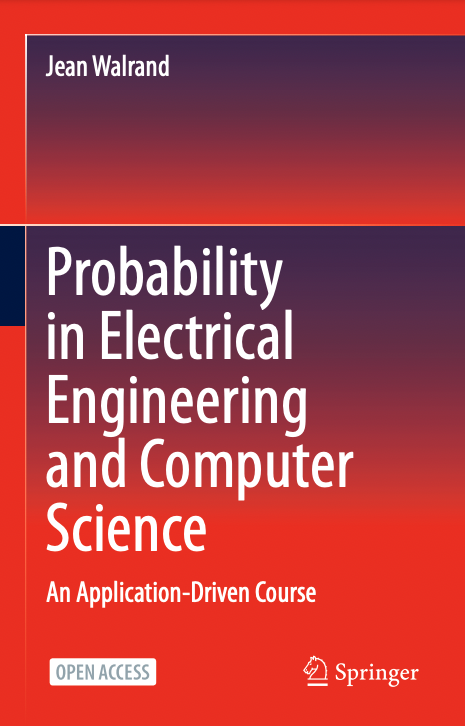
In March 2021, UC Berkeley Library entered into the first-ever institutional open access book agreement with Springer Nature. The partnership provides open access funding to UC Berkeley affiliated authors who have books accepted for publication in Springer, Palgrave, and Apress imprints. This means that these authors can publish their books open access at no direct cost to them. The agreement covers all disciplines published by Springer. It will last for at least three years, and aims to support the publication of four open access books each year. All the books will be published under a Creative Commons Attribution license.
The first book published open access under the UC Berkeley-Springer agreement is Probability in Electrical Engineering and Computer Science, written by Jean Walrand, Professor in the department of Electrical Engineering and Computer Sciences at UC Berkeley. It is available as a CC-BY licensed PDF and EPUB.
Professor Walrand wrote in an email about open access and free digital downloads affect how students and other readers interact with the book.
“Digital resources are more convenient than printed material for searching, hyperlinking, frequent updates, and general access. They enable animations, videos, and interactions with the material, its users, and authors. Moreover, availability of code that complements publications is important in our field. Students are used to reading online. In STEM fields, printed materials are becoming obsolete. However, I believe that carefully edited material is valuable and that good publishers have a useful role to play as editors of digital resources. The open access model is a good step to evolve the role of publishers and libraries. This transition is happening quickly and is challenging.”
BRII support for open access books
We already mentioned how the Berkeley Research Impact Initiative helps UC Berkeley authors publish articles in fully open access journals. BRII funding can also be used to help authors pay book processing charges (up to $10,000/book) so that their monographs can be published open access.
BRII funding has helped several UC Berkeley authors make their books immediately available for free under Creative Commons licenses.
In May 2021 Integrative Biology Professor Brent Mishler published What, if anything, are species? The book is available for anyone to freely read and download under the CC-BY-NC license.
Last year, Jordan Gowanlock (UC Berkeley postdoc in the Department of Film and Media) completed Animating Unpredictable Effects: Nonlinearity in Hollywood’s R&D Complex. The open access book was published by Palgrave Macmillan under a CC-BY license.
Chris Hoofnagle, UC Berkeley Law Professor and Faculty Director of the Berkeley Center for Law & Technology, will publish Law and Policy for the Quantum Age in October 2021 through Cambridge University Press. The open access book was co-written with Simson Garfinkel and will be made available under a CC-BY-NC license. In an email, Professor Hoofnagle wrote about the importance of open access and the financial support he received from BRII:
“Publishing open access is critical to the academic success of this work. A book format was necessary to explain the history and nuances of quantum technologies. Open access gives the work the public availability of an article and the room needed to develop a story that can’t be told in an article-length exposition. We are thankful to BRII for this support.”
Open access at the University of California Press
UC Berkeley Library continues to support open access book publishing via Luminos, the OA arm of the University of California Press. The Library membership with Luminos means that UC Berkeley authors who have books accepted for publication through the UC Press can publish their book open access with a heavily discounted book processing charge. When combined with additional funding support through BRII, a UC Berkeley book author could potentially publish an OA book with the costs being covered fully by the Library. Luminos books are published under Creative Commons licenses with free downloads.
What Is a Family? Answers from Early Modern Japan was published by Luminos in 2019, with financial support from BRII. It was co-written by UC Berkeley Department of History Emerita Professor Mary Elizabeth Berry. What Is a Family? is available as an openly licensed ebook in EPUB, MOBI, and PDF formats.
Pressbooks open book platform
The UC Berkeley Library hosts a version of Pressbooks, an online platform through which the UC Berkeley community can create open access books, open educational resources (OER), and other types of digital scholarship. UC Berkeley authors have published several books via Pressbooks over the last year, including Euripides Scholia, The Discipline of Organizing, The Languages of Berkeley, and Building Legal Literacies for Text Data Mining.
Pressbooks provides for web viewing, as well as ebook downloads in a variety of formats, including PDF and EPUB. Anyone with an @berkeley.edu email can create and publish ebooks on Pressbooks. And, the Office of Scholarly Communication Services continues to offer small grants of up to $5,000 to Berkeley faculty or instructors who wish to create open educational resources or open textbooks that are aimed to be used in instruction.
Investing in the broader OA book publishing community
Back in April we wrote about how the UC Berkeley Library’s Collection Services Council was working to develop local best practices to guide investment in open access products and services. The Library is now working on an implementation plan that embeds the criteria into decision making about whether (and how) to invest in OA resources, memberships, and projects, including OA book publishing initiatives.
We’re starting to kick the tires of the review criteria and process based on requests we’ve already received to invest in new types of open access book support models. For example, the University of Michigan Press is testing a publishing model that asks for upfront investment from the library community in order to support new open access book publishing. Under their Fund to Mission Open Access Monograph Model, if the press meets a specific financial investment goal, they’ll make 50% of their 2022 titles open access. The more investment they receive from the library community, the greater percentage they publish open access from the get go. Libraries are granted term access to their backlist for the duration they are offering support. UC Berkeley Library has evaluated the proposal of the University of Michigan Press Ebook Collection and decided to financially support the initiative for the next three years.
Wrapping up
In this post, we discussed the many ways that the University of California—and specifically UC Berkeley—is supporting scholarly authors to create and share open access books. In addition to providing financial assistance, platforms, and publishing guidance, the Library is committed to promoting the broader OA book publishing ecosystem through strategic investment of our collections budget. We’ll continue to explore a variety of approaches to support the UC Berkeley community (and beyond) who wish to publish books on open access terms.
If you’re interested to learn more about how you can create and publish and open access book, visit our website or send an email to schol-comm@berkeley.edu.
